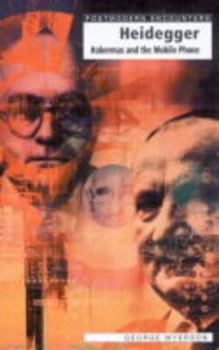Heidegger, Habermas and the Mobile Phone (Postmodern Encounters)
(Part of the Postmodern Encounters Series)
Global instantaneous mobile telephony is at the cutting edge of the communications revolution. Humanity, for Martin Heidegger, is 'the entity that talks'; Jurgen Habermas is a passionate advocate of... This description may be from another edition of this product.
Format:Paperback
Language:English
ISBN:1840462361
ISBN13:9781840462364
Release Date:February 2001
Publisher:Icon,Totem Books
Length:80 Pages
Weight:0.05 lbs.
Dimensions:6.9" x 0.3" x 4.4"














